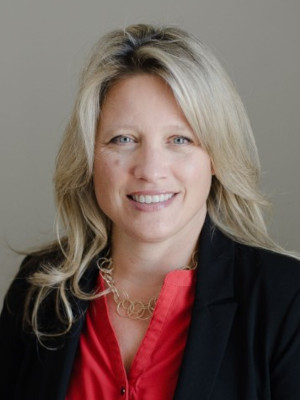Edmund Chien knew it wasn’t going to go well. Chien, a former family advisor and current public speaker in behavioral finance for family offices, was in a meeting with second- and third-generation members of a family in which the grandfather had passed away years earlier, leaving behind the father, mother and five adult children.
“The two older brothers were the golden geese,” Chien says. They had received significant shares of the family businesses, and the younger children had been given equal-value lump sums. At the time, the youngest daughter was mum about the arrangement.
During the five ensuing years, however, the companies had flourished, says Chien, and the daughter began thinking that the original division was unfair. “She’s looking at the financials of those businesses, and they’re worth substantially more. She feels that she’s worth more.”

Now, the daughter was bringing up things her elder brothers did to her when she was a child, such as pushing her off her tricycle. “She was bringing back all this baggage from when they were five, and they were not five,” he says. “They were in their 50s, so there’s all this bitterness that she has been harbouring for many decades, and it all comes out.”
In short, he says, “The thing absolutely explodes, and she starts to contest the will. It is going to cost the whole family millions of dollars.”
He adds, “I had no clue this was going to happen.”
Withholding information can sometimes harm others emotionally. But keeping secrets in a wealthy enterprising family can also cause damage to the family business and to family unity and their sense of purpose. (We aren’t talking secrets that families keep from the rest of the world, but the ones that family members keep from each other when they are not honest and forthcoming.)
Some secrets are more explosive than others, such as when a family member hides a medical diagnosis or a “secret family” pops out of the woodwork.
In the case of medical issues, when someone is sick and hiding it from the family, or they are struggling with depression or mental illness, there are always signs, says Kim Robinson, a family business advisor at Empower Planning, based in Port Stanley, Ont.
“The reality is that people think it’s being kept a secret, but we give ourselves away. And the level of trust degrades, and our ability to communicate and deal with difficulty and conflict reduces,” she says. “We’re holding it inside. It has to go somewhere, and it either makes people sick or we don’t behave effectively.”
How can families manage potential secrets—intentionally kept or not—before they explode and cause damage? One way is to create an environment where they are less likely to be kept in the first place.

One avenue for family secrets to be brought into the open is through proper governance structures. And the sooner these potentially harmful issues are identified, the better, before they calcify into resentments, says Trudy Pelletier, president of the Family Steward Group Inc. in Calgary.
One step is to establish principles and take the mystery out of family decision-making, such as during the succession process. For example, one of Pelletier’s client families decided to establish that whoever was going to be the successor needed to be in the family bloodline; spouses would not be considered for the role.
Another option is to perform leadership assessments. She mentions that one family had already designated a successor, but another candidate stepped forward later.
“There were seven of 12 family members working in the enterprise, including two spouses. The number two son was the assumed successor. And I remember the first time when I was facilitating in the business system, I said, ‘So who else, by show of hands, has an interest in being considered?’ Well, one other hand went up,” she says. It was a younger sibling.
From there, Pelletier performed a leadership assessment and it turned out the sibling didn’t have the right skills to be considered a successor. The assumed successor remained in place, and a role was found in which the younger sibling could develop and grow. This way, the sibling wasn’t ignored, and a possible succession challenge to the business was avoided, saving years of drama for the family and the company.
If these kinds of secrets are not addressed, a resulting lack of trust can lead to slower decision-making, Robinson says. “It takes longer to get anything done. You can’t make decisions, and relationships start to break down. I call it the ‘trust tax.’”
Communication is better than secrets, experts say. But it need not be formal, as during an annual meeting. Sometimes families can have fun with it.

Robinson worked with a family where one of the members tended to bulldoze over others in his mannerisms. So when those tendencies kicked in, someone would put a toy bulldozer on his desk.
“And nobody had to talk about it. It wasn’t insulting, because he agreed to it. That means that he understood without a whole bunch of communication that he was in bulldozing mode, and that there was an opportunity for him to soften.”
Even if your family isn’t prone to drama, experts say, it’s a good idea to set up succession plans for the business and the family, as well as the governance structures to manage them—especially who participates in them—and to have regular, open conversations.
A toy or two could help as well, providing everyone agrees.
Renée Sylvestre-Williams has written for Canadian Family Offices for three years. She is a Toronto-based journalist and content strategist with more than 15 years covering personal finance, insurance, taxes and investment. She has written for the Toronto Star, the Globe and Mail, WealthSimple, MoneySense and The Walrus. She is a COPA winner, editor of The Budgette (a newsletter focused on finance for solo earners), and the author of the book The Singles Tax (January 2026).
The Canadian Family Offices newsletter comes out on Sundays and Wednesdays. If you are interested in stories about Canadian enterprising families, family offices and the professionals who work with them, but like your content aggregated, you can sign up for our free newsletter here.
Please visit here to see information about our standards of journalistic excellence.




